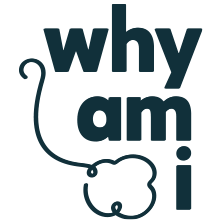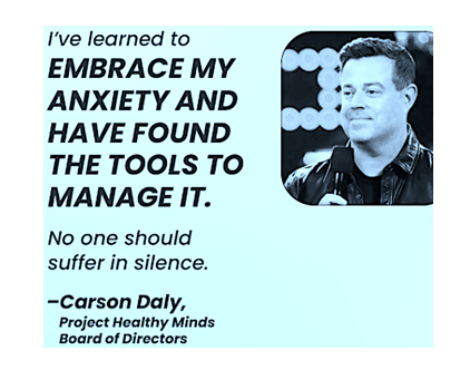As the new year approaches, it’s a good time to consider your habits—and which ones might be detracting from your wellbeing and sense of stability. Research has repeatedly demonstrated that excessive alcohol consumption can disrupt the chemicals in our brain that are critical for maintaining strong mental health. It’s no wonder, then, that people who regularly consume alcohol are more likely to suffer from mental health conditions, such as depression and anxiety.
January is around the corner, and it’s the perfect time to cut back on alcohol—or even consider cutting it out altogether. After all, it’s “Dry January,” a public health campaign that encourages people to abstain from alcohol for the entire month. If you’re considering taking a break from booze, January is a great time to do it.
We’re delving into the history of Dry January, why it exists, and how it can have an incredible impact on your mental health and overall wellbeing.
What is Dry January, and how did it start?
Dry January came about in 2013, beginning as an initiative by a British charity called Alcohol Change U.K. In the decade following its genesis, millions of people around the world have participated annually in Dry January, ditching drinking for the entire month.
Since the onset of the COVID-19 pandemic, alcohol consumption has skyrocketed, coinciding with rising levels of emotional distress, anxiety and mounting unease. Excess drinking has surged 21% in the U.S., and similar increases have been reported in Canada and elsewhere around the world. While consuming alcohol can temporarily quell anxiety, depression and stress levels, in the long-run, it has the propensity to majorly exacerbate mental health issues.
The dangers associated with drinking are rooted in science. There are several short-term risks (including alcohol poisoning, injuries, and violent behavior), as well as a multitude of long-term health problems that can materialize over time. From high blood pressure to heart disease, cancer to mental health problems—the downsides of excessive drinking must not be ignored.
Benefits of Dry January
Dry January offers a slew of benefits. For starters, amid the holidays, December is usually a month of heavy drinking and indulging for most people. That’s why, in more ways than one, January feels like a natural fresh start, and an opportune time to embark on a healthier path. Participating in Dry January could be exactly the reboot you need to start the new year with your best foot forward.
A post-holiday alcohol cleanse has benefits for both the body and the mind. Of the countless reasons to consider cutting out alcohol, here are a few:
- Develop a healthier relationship with alcohol: Taking a step back away from alcohol will help you develop healthier, more sustainable drinking habits. Pausing from drinking will ensure that you do not become dependent on alcohol, and it will also help you improve your tolerance, so you can drink less going forward. Cutting out alcohol might also reinforce that sobriety is a superior lifestyle for you.
- Boost your mood: The day after heavy drinking, many people wake up with a pit in their stomach or a relentless feeling of crippling anxiety. Consuming alcohol inherently spikes your blood sugar, and when it finally dips the following day, it can spur feelings of unease and general malaise. Hangovers are never fun, and they are often accompanied by emotional upheaval. Cutting out alcohol helps stabilize mood, and promotes a stronger state of mind.
- Better sleep: Alcohol disturbs our body’s processing of adenosine, a chemical that makes blood vessels relax while we sleep. Research has demonstrated that drinking has a directly negative impact on our ability to sleep soundly. Poor sleeping patterns can result in a number of physical and mental health challenges.
- Improve mental health: As mentioned above, avoiding alcohol can make a marked difference on overall mood. Often, people with mental health challenges self-medicate with alcohol rather than therapy or prescribed medicine—which is perhaps the most counterintuitive thing one can do. Because alcohol directly impacts the chemicals in our brains, abstaining from it entirely is essential for stabilizing and feeling secure when sober.
- Improve physical health: Whether it’s bettering our immune systems, assisting with weight loss or mitigating chronic illness, cutting out alcohol has countless benefits for physical health.
- Improve self-awareness: Partaking in Dry January can sharpen your sense of self, and help you take control of your life. Taking time for sobriety will allow you to reflect deeply on your habits, and assess whether your standard drinking routine is serving you—or inflicting harm on your health.
- Community feeling: Cutting out alcohol is difficult in any context, but it certainly helps to have a community of people doing it alongside you. Dry January is therefore the most ideal time to test sobriety, as millions of people around the world are in it together. Participating in Dry January will help you feel less alone as you embark on a path to a healthier lifestyle.
Dry January and mental health
While curbing alcohol consumption has obvious benefits for overall well being, the positive impact it has on mental health is truly astounding. Studies have shown that even commiting to one drink-free month can markedly improve mental health and quality of life. So, this Dry January, give sobriety a try.



